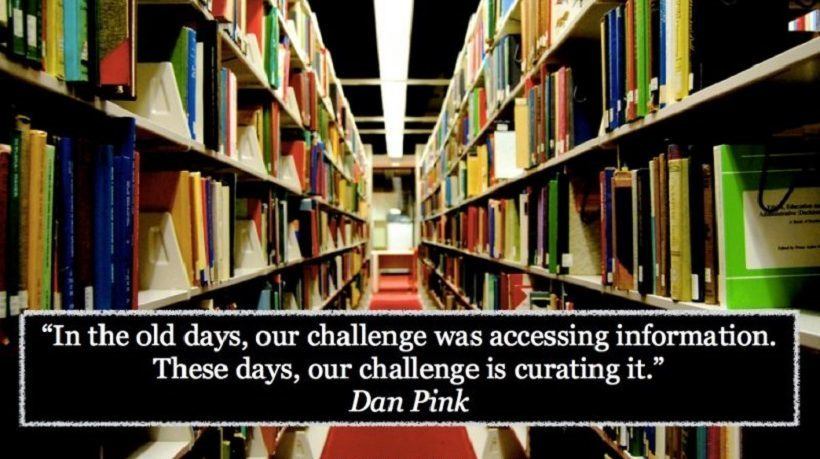Knowledge Sharing In eLearning: 5 Tips For eLearning Professionals
Knowledge sharing may sound simple enough. You create an eLearning course with targeted learning objectives, give online learners the resources they need, and then send them on their merry way. But there's much more to it than meets the eye. In fact, effective knowledge sharing takes careful organization, active learner participation, and a thriving online learning community. Here are 4 benefits associated with knowledge sharing, as well as 5 tips to help you facilitate the process in your eLearning course.
4 Benefits Of Knowledge Sharing
1. Improves Productivity And Efficiency
Everyone participates in the knowledge sharing experience. As such, everyone has the opportunity to give and receive valuable information and insight. The result is improved productivity and efficiency because you are making the most of your human resources. This also reduces online training costs, as you don't need to develop as many formal eLearning materials. In other words, the knowledge sharing ROI can be very valuable! The sharing usually happens naturally through online discussions and other collaborative eLearning activities.
2. Increases Online Learner Participation
Knowledge sharing gives online learners the ability to share ideas, ask questions, and address concerns. As a result, they are more motivated to participate and actively engage in the eLearning course. They also have the opportunity to customize the eLearning experience based on their goals and objectives. For example, search for specific social media groups or multimedia online resources to fill skill gaps.
3. Optimizes Your eLearning Feedback System
Since knowledge sharing is such a collaborative process, you gain direct access to peer-based feedback. You can also gain more insight through manager involvement. For example, supervisors work directly with their subordinates to identify performance gaps. They have the power to intervene when necessary. Furthermore, leaders can pass along this data so that you can improve the eLearning course design to meet online learners' needs.
4. Encourages Online Collaboration And Brainstorming
Online learners are able to openly communicate with their peers, which allows them to brainstorm without limitations. They are free to share their opinions and experiences in order to expand the collective knowledge base. Knowledge sharing goes hand-in-hand with a supportive learning culture. As such, online learners know that they won't be judged or ridiculed when they participate in online discussions. This means that they are more likely to offer their ideas and thoughts in order to benefit the common good.
5 Tips To Facilitate Knowledge Sharing In eLearning
1. Build A Centralized Online Resource Library
Online group collaboration is an essential part to the process. However, there are times when online learners need quick access to information. For example, self-paced online learners who require a task tutorial in order to get the job done. Online resource libraries give them the ability to expand their knowledge and build skills asynchronously. Microlearning online videos, simulations, online presentations, and eLearning infographics are all ideal additions. Also, make it easy for online learners to access the eLearning materials by creating a clickable map. Divide the library into categories so that online learners can find the targeted eLearning content they need at a moment's notice.
2. Identify Knowledge Sources In Your Audience
Chances are, you already have valuable knowledge sources in your audience. But the only way to discover this untapped talent is to conduct a thorough audience research. Use surveys, eLearning assessments, and interviews to discover what your online leaners know and how they fit into the big picture. Think of every individual as a puzzle piece. They have something to offer their peers and you just need to determine what it is. Once you identify your knowledge sources, develop a mentorship program and invite online learners to create their own eLearning materials.
3. Create Online Learning Communities
eLearning forums, social media groups, and blogs serve as great platforms for online learning communities. These tools allow online learners to collaborate with their peers and share vital information. For example, posting tips and article links to improve comprehension. The secret is setting ground rules so that the conversation stays on track. You should also define expectations and identify goals for each group. For instance, your closed Facebook group must focus on eLearning marketing techniques and strategies. This ensures that every member of the group gets the advice they need, instead of going off on tangents.
4. Host Webinars That Rely On Peer-Based Interaction
Webinars are interactive, immersive, and collaborative. They allow online learners to provide eLearning feedback and see things from a different perspective. As a result, they may start to challenge their assumptions. When they break down the cognitive barriers they are able to expand their understanding and explore new approaches. Provide online learners with a list of topics in advance so that they can prepare their questions and ideas. Break larger audiences into small groups to give everyone the chance to participate.
5. Stress The Benefits Of Knowledge Sharing
Online learners may be hesitant to share their knowledge at first, especially those who are more competitive. However, they may be more open to the process if they know the benefits involved. In other words, "what's in it for them?" Emphasize that online learners must give and receive information in an interactive way to enhance their understanding. Use real world examples, case studies, and personal anecdotes to show the practical applications of knowledge sharing. For example, the main character in your example is part of an online learning community. They build essential skills and improve their comprehension, which leads to a job promotion.
Knowledge sharing requires online learner involvement. Thus, they must be ready and willing to actively engage in the process and share their experiences with others. Share the basics and benefits with your audience upfront so that they know what to expect. This may be the motivational nudge they need to become a valuable member of the online learning community.
Knowledge sharing is only effective if online learners retain the information. Read the article Practice Makes Perfect: 6 Tips To Improve Knowledge Retention In eLearning to discover how to improve knowledge retention in eLearning through repetition and practice.








